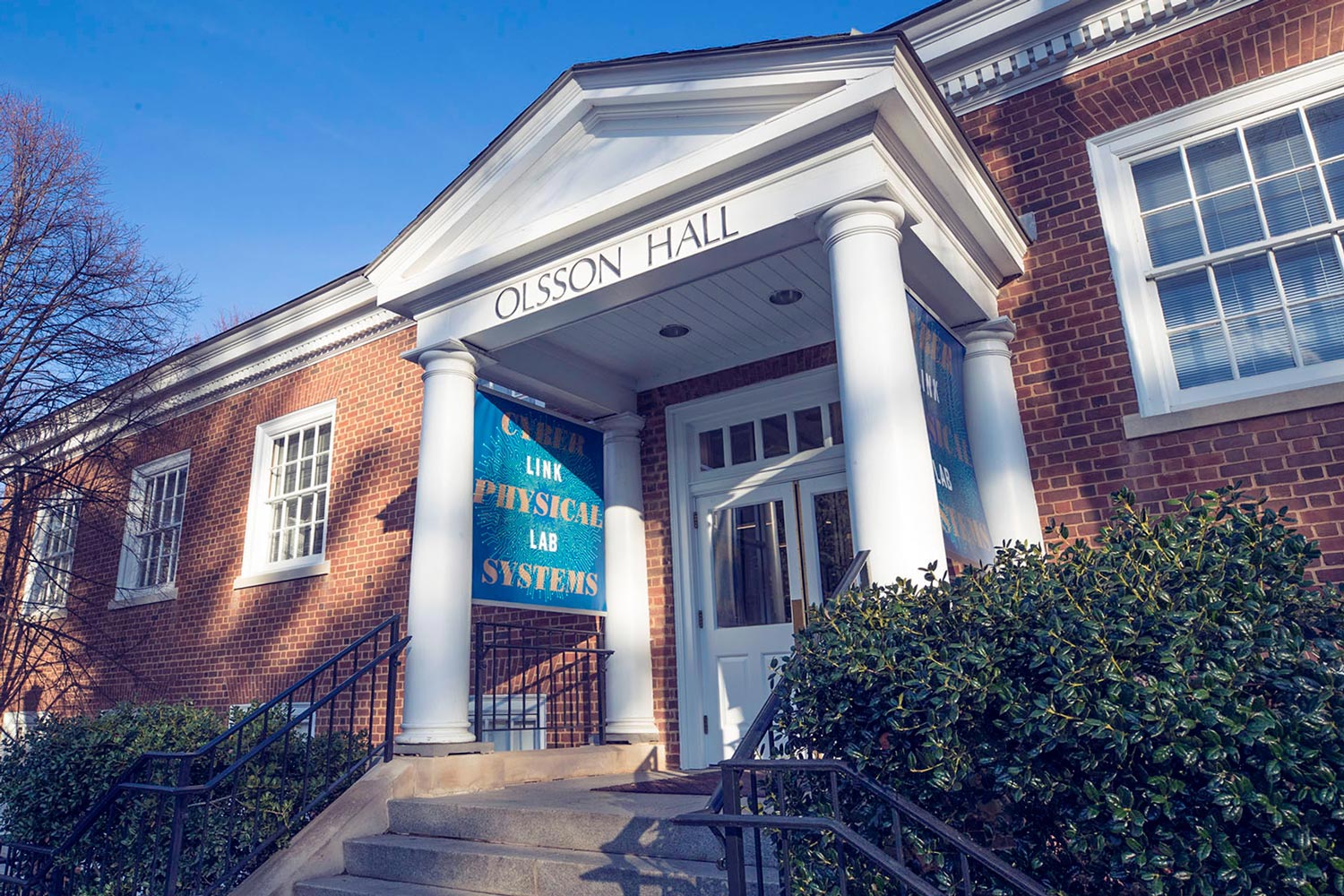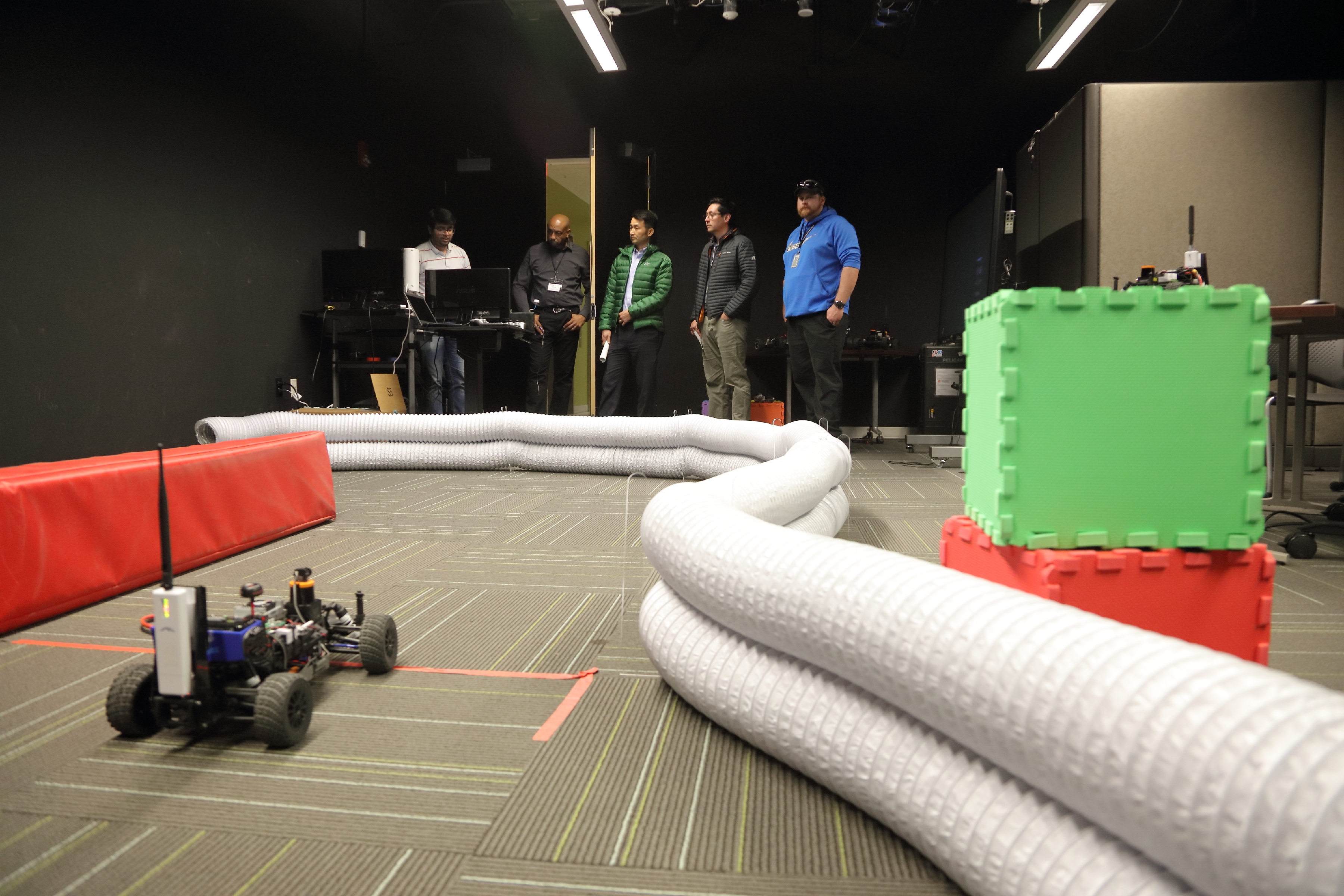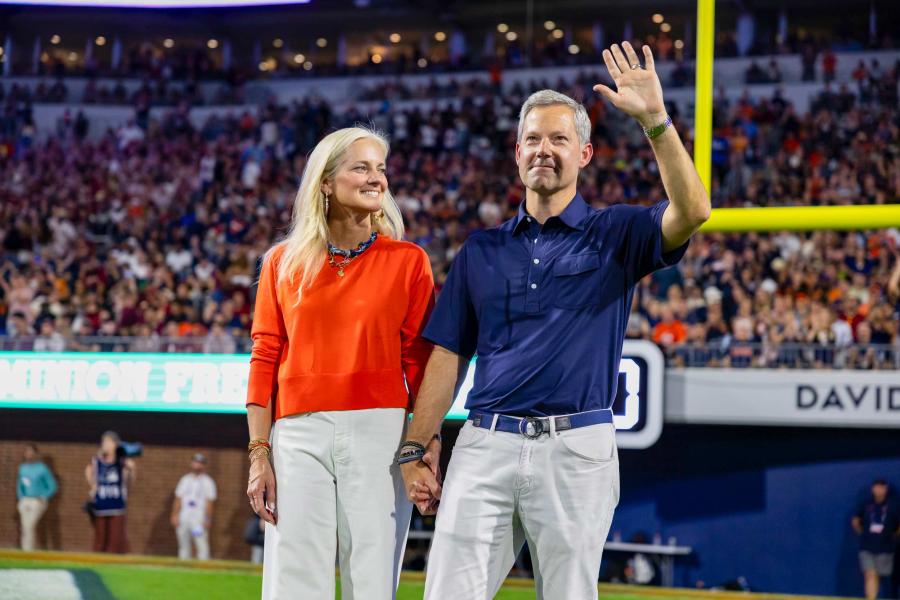The graduate certificate is the next big step forward for the Link Lab, a 17,000-square-foot center of excellence in cyber-physical systems that opened in 2018.
In the Link Lab, faculty and graduate students from the disciplines of civil engineering, computer engineering, computer science, electrical engineering, mechanical and aerospace engineering and systems engineering collaborate on multidisciplinary research projects to develop cyber-physical systems technologies in the areas of autonomous systems, smart and connected health, smart cities and hardware for the “Internet of Things.”
Link Lab is also the real-world setting where UVA Engineering faculty deliver the most advanced, graduate cyber-physical systems training in the country.
John A. Stankovic, BP America Professor of Computer Science and director of the Link Lab, and a team of Link Lab faculty earned a $3 million National Science Foundation grant to establish a first-of-its kind graduate-level cyber-physical systems education program. The National Science Foundation Research Traineeship Program is now in its second year and is the catalyst for the new graduate certificate. The Link Lab faculty leading that effort will oversee the certificate program.
Certificate courses emphasize interdisciplinary training in the design, application and ethical dimensions of cyber-physical systems.
“Graduate students collaborate in Link Lab’s embedded workspaces to develop and manage the deployment of cyber-physical systems technologies,” Stankovic said. “Social science topics are also incorporated into the training to build an understanding of human-computer interactions and the societal impacts of the technologies.”
The new certificate supports UVA Engineering’s mission to prepare future engineering and computer science leaders to transform our world and economy.
“Many U.S. companies indicate they have a critical need for trained cyber-physical systems personnel to develop new products and services,” Stankovic said. “It is imperative to build career-aligned skills for future engineers and computer scientists who will lead academic-industry research collaborations and cyber-physical systems industries for decades to come.”
Forty-five UVA Engineering graduate students are participating in the Link Lab’s Research Traineeship Program and taking cyber-physical system courses. These students will be enrolled in the new graduate certificate course curriculum, and they are on track to receive the certificate when they graduate.
New students who wish to earn the graduate certificate will be able to apply starting this semester.
“The creation of this new graduate certificate in cyber-physical systems was propelled by our commitment to provide students with a world-class education,” Stankovic said. “We are providing students expanded course offerings, exciting new experiential learning opportunities, and real-world training in developing cyber-physical systems that can serve global communities.”









